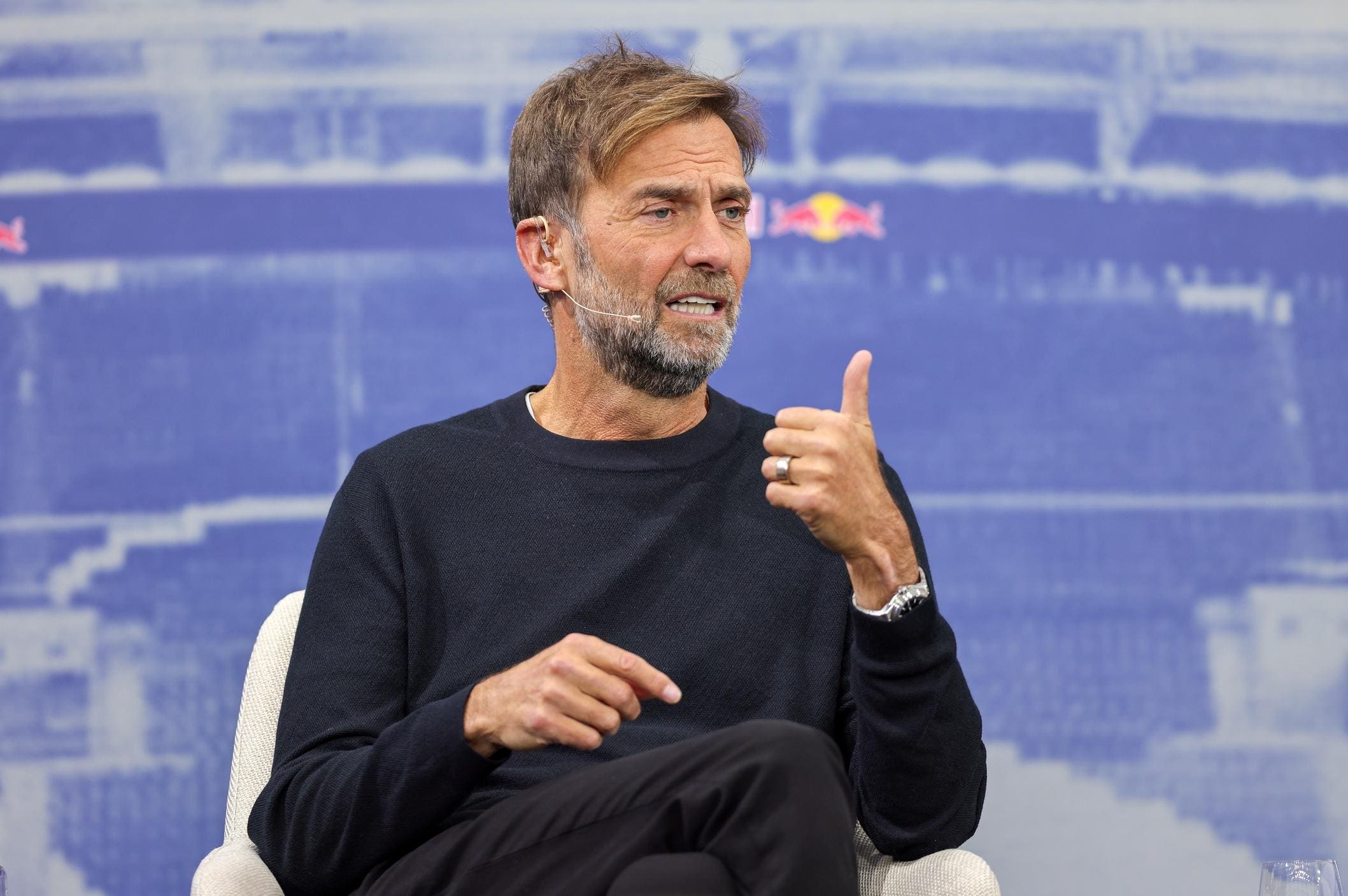
Refreshed and in smart-casual attire, Jürgen Klopp appears somewhat different.
On Tuesday, in Salzburg, Austria, the surroundings unequivocally were. There weren’t historical castles, pleasant hills, or the familiar scenes of chanting fans and players warming up around him. Instead, vehicles and an in-house banner were on show. Corporate comfort. In those environs, the previous Liverpool coach made his first public appearance as energy drink giant Red Bull’s head of global soccer.
He still has the goofy grin and the one-liners. Klopp said “I’m the normal one” when starting at Liverpool, where he breathed new life into the club and won it all. Here, he spoke about being “Dr. Football” and wanting to “give people wings,” referencing the Red Bull strapline and his supportive role in the soccer network, with its individuals and teams spanning continents.
The harsh reaction in some quarters to Klopp assuming this position is understandable. Owning Germany’s RB Leipzig, Austria’s Red Bull Salzburg, and the U.S.’s New York Red Bulls, among others, Red Bull has bankrolled professional soccer. In the Bundesliga, there’s considerable anti-Leipzig sentiment, given the brand commercially overhauled the defunct lower league team SSV Markranstädt into one of the land’s best-performing clubs, circumventing the 50+1 fan ownership rule.
Europe’s Red Bull teams have endured a torrid time in the Champions League lately.
In a romantic way, Klopp has antithesized soccer capitalism. Before saying yes to the conglomerate in October 2024, the fist-pumping, community-oriented bundle of energy led squads playing vivacious soccer that connected with fans. He remains those things. Big business has canned him into something more capitalist. Is Red Bull integrating the 57-year-old for his astute mind? Sort of. But more because he’s Jürgen Klopp—brimming with charisma and a huge PR coup for the organization.
And for all Red Bull’s perceived wrongs, that’s elite sports nowadays. Unaffordable to many, television packages are sold on teams and, primarily, marketable individuals. Soccer clubs, including Liverpool, similarly generate revenue through match tickets, merchandise, and commercial deals. At heart, Klopp—an Erdinger beer ambassador—may not relish the business side as much as the rush of a matchday, yet will know it’s unavoidable and necessary to compete behind the scenes.
Monetized as it may be, Red Bull’s soccer operation has developed human stars like Xavi Simons and Benjamin Šesko, not to mention Liverpool’s old and new: Sadio Mané, Naby Keïta, Ibrahima Konaté and Dominik Szoboszlai. It’s set an excellent template for dynamic, high-energy soccer. Could anyone begrudge flagship club Leipzig toppling one of the sides with Super League-hungry owners in a European knockout tie? Not really, even if the feeling is different inside Germany.
Seeing Klopp fill such a position is quite strange, raising the question of why he’s driving the Red Bull movement if not fighting against it. Nevertheless, it’s worth remembering that he will reportedly—by no means confirmed—make around €10 million ($10 million) to €12 million ($12 million) annually with the brand, according to Sky Germany, with no clear evidence to suggest he’s earning more than at Liverpool. And, as he switches to helping coaches, spotting and nurturing talent, there’s no reason to suggest that won’t be a fulfilling endeavor.
Today’s Klopp may not be the purist of before, but the coach who has delivered unforgettable memories is trying to find his place in an ever-changing game. Like them or loathe them, Red Bull’s teams have room to grow competitively, and Klopp can use his strategy and spirit to set that disruptive bull in motion.
.